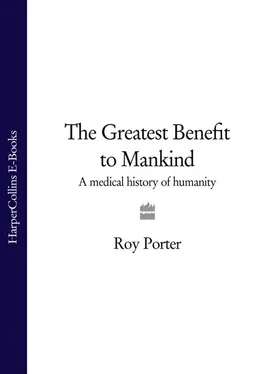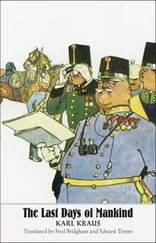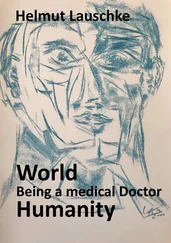Eschewing anachronism, judgmentalism and history by hindsight does not mean denying that there are ways in which medical knowledge has progressed. Harvey’s account of the cardiovascular system was more correct than Galen’s; the emergence of endocrinology allowed the development in the 1920s of insulin treatments which saved the lives of diabetics. But one must not assume that diabetes then went away: no cure has been found for that still poorly understood disease, and it is becoming more prevalent as a consequence of western lifestyles. Indeed one could argue that the problem is now worse than when insulin treatment was discovered.
Avoiding condescension equally does not mean one must avoid ‘winners’ history. This book unashamedly gives more space to the Greeks than the Goths, more attention to Hippocrates than to Greek root-gatherers, and stresses strands of development leading from Greek medicine to the biomedicine now in the saddle. I do not think that ‘winners’ should automatically be privileged by historians (I have myself written and advocated writing medical history from the patients’ view), but there is a good reason for bringing the winners to the fore-ground – not because they are ‘best’ or ‘right’ but because they are powerful. One can study winners without siding with them.
Writing this book has not only made me more aware than usual of my own ignorance; it has brought home the collective and largely irremediable ignorance of historians about the medical history of mankind. Perhaps the most celebrated physician ever is Hippocrates yet we know literally nothing about him. Neither do we know anything concrete about most of the medical encounters there have ever been. The historical record is like the night sky: we see a few stars and group them into mythic constellations. But what is chiefly visible is the darkness.
CHAPTER II THE ROOTS OF MEDICINE
PEOPLES AND PLAGUES
IN THE BEGINNING WAS THE GOLDEN AGE. The climate was clement, nature freely bestowed her bounty upon mankind, no lethal predators lurked, the lion lay down with the lamb and peace reigned. In that blissful long-lost Arcadia, according to the Greek poet Hesiod writing around 700 BC, life was ‘without evils, hard toil, and grievous disease’. All changed. Thereafter, wrote the poet, ‘thousands of miseries roam among men, the land is full of evils and full is the sea. Of themselves, diseases come upon men, some by day and some by night, and they bring evils to the mortals.’
The Greeks explained the coming of pestilences and other troubles by the fable of Pandora’s box. Something similar is offered by Judaeo-Christianity. Disguised in serpent’s clothing, the Devil seduces Eve into tempting Adam to taste the forbidden fruit. By way of punishment for that primal disobedience, the pair are banished from Eden; Adam’s sons are condemned to labour by the sweat of their brow, while the daughters of Eve must bring forth in pain; and disease and death, unknown in the paradise garden, become the iron law of the post-lapsarian world, thenceforth a vale of tears. As in the Pandora fable and scores of parallel legends the world over, the Fall as revealed in Genesis explains how suffering, disease and death become the human condition, as a consequence of original sin. The Bible closes with foreboding: ‘And I looked, and behold a pale horse’ prophesied the Book of Revelation: ‘and his name that sat on him was Death, and Hell followed with him. And power was given unto them over the fourth part of the earth, to kill with sword, and with hunger, and with death, and with the beasts of the earth.’
Much later, the eighteenth-century physician George Cheyne drew attention to a further irony in the history of health. Medicine owed its foundation as a science to Hippocrates and his successors, and such founding fathers were surely to be praised. Yet why had medicine originated among the Greeks? It was because, the witty Scotsman explained, being the first civilized, intellectual people, with leisure to cultivate the life of the mind, they had frittered away the rude vitality of their warrior ancestors – the heroes of the Iliad – and so had been the first to need medical ministrations. This ‘diseases of civilization’ paradox had a fine future ahead of it, resonating throughout Nietzsche and Freud’s Civilization and its Discontents (1930). Thus to many, from classical poets up to the prophets of modernity, disease has seemed the dark side of development, its Jekyll-and-Hyde double: progress brings pestilence, society sickness.
Stories such as these reveal the enigmatic play of peoples, plagues and physicians which is the thread of this book, scotching any innocent notion that the story of health and medicine is a pageant of progress. Pandora’s box and similar just-so stories tell a further tale moreover, that plagues and pestilence are not acts of God or natural hazards; they are of mankind’s own making. Disease is a social development no less than the medicine that combats it.
In the beginning … Anthropologists now maintain that some five million years ago in Africa there occurred the branching of the primate line which led to the first ape men, the low-browed, big-jawed hominid Australopithecines. Within a mere three million years Homo erectus had emerged, our first entirely upright, large-brained ancestor, who learned how to make fire, use stone tools, and eventually developed speech. Almost certainly a carnivorous hunter, this palaeolithic pioneer fanned out a million years or so ago from Africa into Asia and Europe. Thereafter a direct line leads to Homo sapiens who emerged around 150,000 BC.
The life of early mankind was not exactly arcadian. Archaeology and palaeopathology give us glimpses of forebears who were often malformed, racked with arthritis and lamed by injuries – limbs broken in accidents and mending awry. Living in a dangerous, often harsh and always unpredictable environment, their lifespan was short. Nevertheless, prehistoric people escaped many of the miseries popularly associated with the ‘fall’; it was later developments which exposed their descendants to the pathogens that brought infectious disease and have since done so much to shape human history.
The more humans swarmed over the globe, the more they were themselves colonized by creatures capable of doing harm, including parasites and pathogens. There have been parasitic helminths (worms), fleas, ticks and a host of arthropods, which are the bearers of ‘arbo’ (arthropod-borne) infections. There have also been the micro-organisms like bacteria, viruses and protozoans. Their very rapid reproduction rates within a host provoke severe illness but, as if by compensation, produce in survivors immunity against reinfection. All such disease threats have been and remain locked with humans in evolutionary struggles for the survival of the fittest, which have no master plot and grant mankind no privileges.
Despite carbon-dating and other sophisticated techniques used by palaeopathologists, we lack any semblance of a day-to-day health chart for early Homo sapiens. Theories and guesswork can be supported by reference to so-called ‘primitive’ peoples in the modern world, for instance Australian aborigines, the Hadza of Tanzania, or the !Kung San bush people of the Kalahari. Our early progenitors were hunters and gatherers. Pooling tools and food, they lived as nomadic opportunistic omnivores in scattered familial groups of perhaps thirty or forty. Infections like smallpox, measles and flu must have been virtually unknown, since the micro-organisms that cause contagious diseases require high population densities to provide reservoirs of susceptibles. And because of the need to search for food, these small bands did not stay put long enough to pollute water sources or accumulate the filth that attracts disease-spreading insects. Above all, isolated hunter-foragers did not tend cattle and the other tamed animals which have played such an ambiguous role in human history. While meat and milk, hides and horns made civilization possible, domesticated animals proved perennial and often catastrophic sources of illness, for infectious disease riddled beasts long before spreading to humans.
Читать дальше












